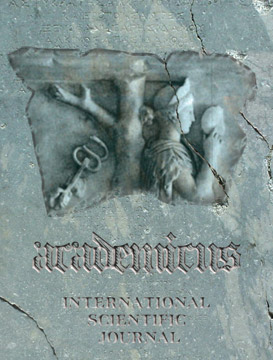Title:
Author(s):
Abstract:
What is the future of liberal democracy? Is the “liberal” ingredient of 21st century democracy compatible with its “demos”? Are developed democracies more equalitarian and less stratified than other regimes? Or are present day democracies evolving into something different that needs a new definition? By the early 1990s liberal democracy appeared to have become the dominant system at a global scale. The hope of citizens, scholars, and observers was that the stride toward broader democratization and inclusion would continue. It did, but as this paper argues, the forms adopted by democratic regimes, especially under the fourth industrial revolution, are not necessarily democratic. Rather, liberal democracies have created a new aristocracy that includes high tech monopolies, extremely skilled professionals, and a selected intelligentsia that from social media, conglomerates, and many times Hollywood, supports this new stratified version of the democratic polity. Family dynasties, clientele networks, and mechanisms of reward and punishment reminds us of the pseudo democracies of the late 19th century. Surely the dwindling middle class in developed democracies still have some consumer power based on credit. Global markets offer many more available consumer goods than in the past, creating the illusion that all is going well. Comparatively, however, democracies are doing worse. As this paper shows, 21st century liberal democracies have concentrated wealth in fewer hands than in the recent past, have favored power centralization especially in the executive branch, have stimulated the formation of giant high-tech monopolies, and have generated more rigid forms of social stratification. Liberal democracies, therefore, are weaking, in many cases as the logical consequence of the natural evolution of the liberal doctrine, and in most cases because of profound changes at the global scale. Citizens’ confidence in their elected representatives has been in the decline for a long time. The increasing influence of populist nationalism is an indicator that confidence in traditional politicians continues to deteriorate. Democracy could not be democratic without the popular vote, but it has been precisely the popular vote that has empowered populist nationalist leaders, both from the right and the left. There is not very much that democracies can do about the coming to power via the ballot box of leaders who can rework the system in their favor and, in some cases, destroy it. As the paper shows, changes in the international system of power have not been favorable to liberal democracies, adding to its burdens. They are no longer the optimal model of choice, especially in the less developed world. Finally, I claim that the broken promises of political elites that have traditionally provoked voters’ apathy and loss of trust, have, In the 21st century, created new unintended consequences. They have generated illusions of entitlement and deservingness that, especially young voters, have converted into a sort anti-democratic culture that cares less for the collective and much more for themselves.
Keywords:
liberal democracy; globalization; United States; China; Fourth Industrial Revolution; populist nationalism;
Full Text PDF:
References:
View complete reference list, click
here
Digital Object Identifier DOI:
The article's content ©Academicus™ The Undemocratic Future of 21st Century Liberal Democracy
by
Prof.Dr. Fernando Lopez Alves
is licensed under a Creative Commons
Attribution-NonCommercial 4.0 International License.
Presented:
May 2021
Included for Publishing:
June 2021
Published:
July 2021,
Volume 12,
Issue 24
Academicus International Scientific Journal is an Open Access Journal. This means that all content is freely available without charge to the user or his/her institution. Users are allowed to read, download, print, search, or link to the full texts of the articles in this journal without asking prior permission from the publisher or the author. This is in accordance with the BOAI definition of open access. Users are obliged to cite the source (Academicus International Scientific Journal) and the author, according to the international citation standards.
To learn more about the OA Policy followed by Academicus ISJ, read Journal Regulations
Academicus
International Scientific Journal
pISSN 2079-3715
eISSN 2309-1088
Address:
Sheshi i Flamurit, Rruga Muze
Al-9401 Vlorë, Albania
Tel: +355 68 60 60 555
info@academicus.edu.al
https://academicus.edu.al



 Scholar
Scholar
 Crossref
Crossref
